September 14, 2019
The Manufacturing of Greta Thunberg – for Consent series has been written in two volumes.
[Volume I: ACT I • ACT II • ACT III • ACT IV • ACT V • ACT VI • Addenda I] [Book form]
[Volume II: An Object Lesson In Spectacle • ACT I • ACT II • ACT III • ACT IV • ACT V • ACT VI] [ACTS VII & VIII forthcoming]
• A 100 Trillion Dollar Storytelling Campaign [A Short Story] [Oct 2 2019]
• The Global Climate Strikes: No, this was not co-optation. This was and is PR. A brief timeline [Oct 6 2019]
ClimateWorks, European Climate Foundation, the Global Strategic Communications Council & the Global Call for Climate Action
“On March 15, there was a global protest under “Fridays For Future” which saw demonstrations in Indian cities like Delhi, Mumbai, Bengaluru and Guwahati. Students from over 1,300 towns and cities went on planned strikes across the world on Friday, according to a statement from the Global Strategic Communications Council (GSCC).”
— March 16, 2019, The Asian Age, City Youth Protest Climate Change
“I can’t breathe. Should I stop going to school?” “Kids need clean air”. “No more excuses”. These were some of the phrases on placards Delhi-NCR students carried as they joined the global “Fridays for Future” protest against climate change, urging governments and authorities to tackle the problem. The protests were started by Swedish teenager Greta Thunberg in August 2018, becoming a regular event on the 15th of every month. Students from over 1,300 towns and cities went on planned strikes across the world Friday, a statement from the Global Strategic Communications Council (GSCC) said.”
— March 17, 2019, Over 500 Delhi-NCR Students Join ‘Fridays For Future’ Climate Change Protest
Above: The European Climate Foundation Funders [Source]
In Volume II, ACT I, we explored the origins of US ClimateWorks and its core system in Europe, the European Climate Foundation (ECF).
As “the core of the ClimateWorks system in Europe“, the ECF constitutes an integral part of the regional global network created by the San Francisco-based ClimateWorks. ClimateWorks works to oversee and shape climate-related policy work worldwide. Launched in 2008 – the same year as ClimateWorks) – the ECF is a regranting foundation like its US counterpart.
Hewlett Foundation President Larry Kramer explains: “And here, too, the solution was ingenious. To begin, they proposed to create a central hub—the ClimateWorks Foundation—which would serve as grantor of funds to a coordinated global network… To work on transportation in Europe, then, ClimateWorks would simply channel money to ECF and ICCT [International Council on Clean Transportation] to work together on the problem.”
As discussed in Volume II, Act I, ClimateWorks is the largest recipient of climate philanthropy in the world having received over 1.3 billion USD since its inception. [March 1, 2018, Source]
“In September 2018, in the largest-ever philanthropic investment focused on climate change mitigation, 29 philanthropists pledged USD 4 billion over five years to combat climate change.” [Source]
[Further reading on ClimateWorks and the ECF: The Manufacturing of Greta Thunberg For Consent – A Design To Win: A Multi-Billion Dollar Investment, Volume II, ACT I]
Serving as media director for both the European Climate Foundation (ECF) and the Global Strategic Communications Council (GSCC) is Daniel Donner.
Donner also presides over media relations and events for Greta Thunberg and family. [Source] [Source]
“Based in Brussels, Daniel works with media strategy and outreach as part of the ECF’s Strategic Communications team, focusing on both news media and digital platforms. He maintains relationships with key media correspondents and keeps them informed about international stories on energy and climate change, with the aim to raise the media narrative of EU climate ambition.” [Source]
As an example of Donner’s experience in climate change policy, in relation to governments and municipalities, one can read his July 5, 2017 C40 cities press release for the C40 Cities and Climate Action Network:
“Hundreds of cities, states and regions, businesses, investors, and civil society are moving to implement the Paris Agreement ahead of G20 meeting in Hamburg.”
Funders of the ECF include ClimateWorks (created by the Hewlett, Packard and McKnight foundations), the William and Flora Hewlett Foundation, the KR Foundation, the John D. and Catherine T. MacArthur Foundation, the Oak Foundation, the David and Lucile Packard Foundation, the Rockefeller Brothers Fund, the Ikea Foundation, along with many more identified in the Climate Finance Partnership and Blended Finance Taskforce such as the Government of France, the Government of Germany, BlackRock and Grantham. The Climate Finance Partnership was established by French President Emmanuel Macron at the September 2018 One Planet Summit as a vehicle to tap into and mobilize institutional capital – by leveraging public funds. [Further reading: Volume I, Acts IV and VI of the Manufacturing for Consent series]
ClimateWorks receives funding for specific programs from foundations including the Margaret A. Cargill Foundation, the Children’s Investment Fund Foundation, the Ford Foundation, The Grantham Foundation for the Protection of the Environment, and the Gordon and Betty Moore Foundation.
+++
The Global Strategic Communications Council (GSCC) is a global communications network, set up by the ECF. Its purpose “is to plan and deliver strategic communications in the climate and energy fields at both the international and national levels.” [Source, p. 106]
“The network brings together communications specialists from around the world, each focusing on a particular country or region. They collaborate with and assist a wide range of actors: corporate, government, institutional, media, NGO, think tanks. Part of their work involves identifying high-potential campaigns and individuals, and helping them to plan their actions, target the right audiences and formulate their baseline messages, making sure along the way that each campaign bolsters an overarching narrative. Through the combination of behind-the-scenes (GSCC) and public communications activities, the ESC sought to shape the public debate around climate change.” [Source, p. 107] [Emphasis added]
Countries with GSCC-affiliated experts are growing. States represented thus far include as Australia, Poland, China, India, Brazil, France, Germany, Turkey, the EU, the UK, and the US.[Source] [Source]
As the Manufacturing Greta Thunberg For Consent series has demonstrated, the Global Call for Climate Action (GCCA) has played a leading and critical role as lead organizer and behavioural change agent in the climate “movement” realm over the last decade. In ACT VI of the series, we touched upon three other instrumental actors who have shaped present and future climate policies to reflect the desires of the ruling classes: the European Climate Foundation’s Global Strategic Communications Council (GSCC), the Climate Briefing Service (CBS), and the International Policies and Politics Initiative (IPPI).
Funders of the Global Call for Climate Action (GCCA) include ClimateWorks, the European Climate Foundation, International Policy and Politics Initiative (IPPI), the Oak Foundation, Foundation of Prince Albert II of Monaco, the Government of France, Purpose (Avaaz), the Government of Québec, The Rockefeller Foundation, the UNFCCC Secretariat, and the VK Rasmussen Foundation. [1] [Source] In 2017, GCCA secured new funding from the Global Strategic Communications Council (GSCC), the Waterloo Foundation, and the Institute for Climate and Society. [Source]
Jennifer Morgan, current executive director of Greenpeace International, (instrumental in the formation, launching and management of the GCCA) was also in charge of coordinating the International Policies and Politics Initiative (IPPI) formed in 2013. Leading up to COP15, IPPI worked closely with the European Climate Foundation’s (ECF) strategic communications team. [Further reading: A Decade of Strategic and Methodical Social Engineering, Volume I, ACT VI, Crescendo]
“IPPI was initially intended as a “discrete ECF programme” whose role was to “work behind the scenes.” While the ECF had given rise to the original idea and while it housed its dedicated staff, IPPI was very much presented as an autonomous and “unbranded” initiative (“unbranded” as in not linked to any particular organization). Jennifer Morgan from the WRI was appointed as its coordinator.”[Source, p. 101][Emphasis added]
The overlap between the Global Call for Climate Action (GCCA) and the European Climate Foundation’s Global Strategic Communications Council (GSCC) is extensive. As is the overlap between GCCA, GSCC, the CBS, and the IPPI. Yet, whereas GCCA played the lead role in the public realm, GSCC, like CBS and IPPI, would work behind the scenes as a largely invisible entity. [2]
“Secondly, whereas the GCCA pushed its partners to adopt, publicize and rally behind a common brand—TckTckTck—CBS and IPPI adopted a behind-the-scenes, unbranded approach, supplying partners with information and suggested key messaging but without ever appearing as the source of that information and messaging. CBS briefing recipients were systematically reminded that they were ‘confidential and not for public circulation.'” [Source, p. 111][Emphasis added]
This overlap extended to Climate Nexus [3], a sponsored project of Rockefeller Philanthropy Advisors, and organizer of the 2014 People’s Climate March in collaboration with with foundations and GCCA NGOs.
“The underlying idea was to ‘nurture and engage influential constituencies (industry alliances, ambassadors, foreign affairs think tanks, mayors, states and regions, security officials, humanitarian organisations) with a view of aligning organisations around political interventions as agreed with the relevant national communications capacity of the region.’ At the national and regional levels, this required identifying key narratives and spokespeople. To do this, CBS built up a team of country leads or ‘relationship managers.’ There again, there was an overlap between CBS, the GSCC and other associated communications outfits (Climate Nexus, [The Energy and Climate Intelligence Unit] ECIU, etc.).” [Source, p. 112][Emphasis added]
By 2015, following the GCCA and the Climate Action Network (CAN-International) inaugural meeting in Paris the year prior, the groups had morphed into the “tightly focused, unbranded, Global Strategic Communications Committee (GSCC+) aimed at delivering powerful, positive messages ahead of the Paris COP21”:
“Close integration among GSCC+ partners meant that, by Paris, coordination reached unprecedented levels, allowing us to operate in multiple languages worldwide before, during and after the COP. Work included media and policy analysis, pitching proactive stories, and a reactive strategy for unforeseeable threats and opportunities, involving a team including op-ed writers, graphic designers, social media campaigners, photographers and videographers. GCCA staff held key roles in this team, taking joint responsibility for overall coordination and rapid response, and leading the visual media crew, including the production of daily video newscasts broadcast via GreenTV. As part of this initiative, more than 350 participants from 107 different countries languages and 70 countries. Together, we framed the Paris Summit as a vital stepping stone in the ongoing and inevitable transition from fossil fuels to renewables and greater climate resilience, and our ‘Road Through Paris’ message had a huge impact on media coverage at and after COP21 – aligning and amplifying the ‘good news’ story that the transition is both necessary and desirable.” [Source: Global Call for Climate Action Annual Report 2015–2016, p. 4][Emphasis added] [4]
Among CAN International funders in 2015 were Avaaz, ClimateWorks, European Climate Foundation, Greenpeace, GSCC, Res Publica (co-founder of Avaaz), and WWF. [For the full list, see CAN’s 2015 Annual Report.]
“Within the climate community gravitating around the United Nations Framework Convention on Climate Change (UNFCCC) space, one group in particular was especially satisfied with the Paris outcome. The members of this group were not just satisfied with the agreement but with themselves. They were convinced that they had played a pivotal role in the Paris success. Cutting across a variety of organizations and interests, this group of activists, consultants, business representatives, policy analysts, public figures, climate experts, communications and media specialists, and data analysts worked together—and often in collaboration with the UNFCCC and Parties to the negotiation—in the months and years leading up to COP21 to create the conditions for a “successful” Paris outcome. Late into the evening of December 12, at the Climate Action Network (CAN) International celebratory event in central Paris, members of this highly qualified and experienced network of individuals were celebrating not only the agreement but also their contribution to its realization. As they sang along to Queen’s “We are the Champions!” they had themselves in mind. This was their moment. This was their agreement.”
— The Price of Climate Action: Philanthropic Foundations in the International Climate Debate, 2016, Edouard Morena] [p. 3] [Emphasis added]
Those who served on the GCCA Board of Directors in 2015-2016 include GCCA Board Vice-Chair Phil Ireland (Purpose), Online Progressive Engagement Network), Hoda Baraka (350.org), Fatima Denton (WWF International), Lo Sze Ping (WWF China), and Farhana Yamin, Associate Fellow, Chatham House, and recognized by the Financial Times as “one of the movement’s leading voices” in Extinction Rebellion.
“Over the next two years, GCCA aims to grow its new entrant network to 4,000+ members.”
— Global Call for Climate Action Annual Report, 2015–2016 [Source]
The interlocking directorate between those serving ClimateWorks/EFC and the foundations, institutions and leading NGOs with “designs to win”, can be illustrated in the following brief examples:
- Tim Nuthall serves as the international communications director at the European Climate Foundation. During 2016 Nuthall served as the communications director of the Christiana Figueres’ campaign to become the new secretary general of the United Nations. [Source] Nuthall was also short-listed for the 2014-2016 International Council for Science (ICSU) Road to Paris top “20 people we want to hear more from in the climate change debate.” [Source] [5]
- Tom Brookes is executive director, strategic communications, and a member of the ECF Executive Management Team. Based in Brussels, Brookes works to advance the policy response to climate change, and has responsibility for external communications, public affairs, and political communications strategy for the ECF, its affiliates, and network. [Source] Having joined the ECF in 2009, Brookes is also senior advisor on international strategic communications for the ClimateWorks Foundation and executive director of the Global Strategic Communications Council (GSCC). [Source]
- Christian Teriete is part of the ECF’s Strategic Communications unit working as the network director to coordinate the activities of an international team of communications specialists. Prior to joining the ECF in 2016, Teriete served as communications director for the Global Call for Climate Action (GCCA). Prior to joining the GCCA in 2010, Teriete spent seven years working for WWF. From 2004 to 2006, he managed communications for the global PowerSwitch campaign. From 2007 to 2010, he coordinated WWF’s climate and energy campaigns in the Asia-Pacific region. [Source]
- Andrew Schenkel “works primarily with the Global Strategic Communications Council, a global network of communications professionals in the field of climate and energy.” Prior to this role, Schenkel served as both communications Director and managing editor and director of special projects for Global Call for Climate Action – GCCA. [Source]
- James Lorenz serves as Southeast Asia manager for the Global Strategic Communications Council (GSCC). “The role has required diplomacy, tact and leadership to forge relationships with a broad range of stakeholders – from investors at Vietnam Holdings, to Mission2020, led by former Executive Director of the UNFCCC, Christiana Figueres.” Prior to this Lorenz served as Australia lead to the GSCC. Prior to his work at GSCC, Lorenz served as senior media advisor, media manager, head of communications for Greenpeace Australia Pacific. [Source: Lorenz CV]
- Aarti Khosla is director of Climate Trends. Prior to this position, Khosla was climate and energy communications specialist for Global Strategic Communications Council India for four years. Prior to this position, Khosla served WWF for seven years. [Source]
As an example of the collaborative efforts between GSCC and affiliates, one can observe the Social Media Communications hybrid capacity-training program led by GSCC and assisted by GCCA co-founder Avaaz. [“Social Media Communications Skill Share (SMC) is a hybrid capacity building training organized by GSCC,Bankwatch and European Beyond Coal Campaign.] SMC aims to address the needs of the civil society organizations in Central Eastern Europe and Balkans Region”.] All online learning modules, weeks one to four were led by GSCC affiliates. Week 1 was led by GSCC’s Devin Bahceci (climate and energy campaigner for Greenpeace) and Greg McNevin (communications director for Europe Beyond Coal, former strategic communications directors for GCCA, and former media relations specialist for Greenpeace). Week 2 was led by Daniel Donner (Thunberg media manager) and Paul Batty, both of GSCC, while the social media campaigning and engagement webinar was to be conducted by Iain Keith of Avaaz. The webinars were open to all interested people from the Europe Beyond Coal network and partner organizations. A day camp to “focus building skills together on concrete case of social media campaigning” was also organized. [Source]
The ECF is the leading partner of the Beyond Coal campaign in Europe. Bloomberg Philanthropies is a major funder of ECF:
“November 9 2017, New York, NY— Just after announcing a renewed commitment of $64 million to the Beyond Coal campaign in the United States and during this year’s UN Climate Conference COP 23 in Bonn, Germany, Michael R. Bloomberg, U.N. Secretary-General’s Special Envoy for Cities and Climate Change, announced a $50 million-dollar commitment to partners worldwide to catalyze a global effort to move nations away from coal dependence. European Climate Foundation will be the leading partner in Europe.”
— Michael R. Bloomberg Commits $50 Million to International Effort to Move Beyond Coal, Reinforcing Leadership on Global Climate Action, ECF website
As coal was phased out, natural gas moved in to take its place with energy corporations planning to add at least 150 new gas plants and thousands of miles of pipelines in the years ahead, in the US alone. [June 26, 2019: “As Coal Fades in the U.S., Natural Gas Becomes the Climate Battleground”] It’s par for the course that Willett Advisors, the investment arm for the personal and philanthropic assets of Michael Bloomberg, specializes in oil and gas. Here, we can note that the lead at the environment program at Bloomberg Philanthropies sits on the ECF supervisory board. [Further reading: Volume II, ACT I]
+++
A pivotal role in foundation funding, is hegemonic control and further colonization over states struggling to achieve or maintain their right to sovereignty. The protection and expansion of imperial foreign policies and economic interests is paramount. Consider that from 2015 to 2016, the Oak Foundation provided funding to the ECF in order to “expand and improve the public discourse on climate change and energy issues in India”. Not the Netherlands, where the project is based, but India. [“Starting with a focus on COP21, GSCC is working across a diverse set of partnerships including civil society groups, policy makers and the informed public to mainstream the discussions on climate change and energy in India.”] This is nothing more egregious than continued colonization under the guise of climate protection. [Source]
Whereas 20th century missionaries carried out their conquests in servitude to colonial states, in the 21st century it has been international NGOs for the most part fulfilling this endeavour. A transition is underway, however. Whereas the NGOs comprising the non-profit industrial complex are this century’s primary force multipliers, today, in an avant-garde brave new world – meets society of spectacle, the new improved, modern weapon of choice has become the citizenry of a targeted demographic, who can be made to demand a camouflaged destruction of their own shared futures. Consumers have been shaped into prosumers – product and brand advocates – who now take the lead in demanding products and/or change/reform. This new role is encouraged, nurtured, and repurposed by corporations as leverage to bolster their profits, growth and credibility under the guise of capitulation and benevolence. Unwittingly, the collective can be made to demand their own further servitude and enslavement under the guise of empowerment. Made both invisible and irrelevant is the labourer, now recognized as human capital, who with little to no disposable income, has become largely disposable.
+++
The European Climate Foundation (ECF) has provided the GSCC millions in funding since its inception. More recently, and notably, on August 9, 2018, the ECF granted the GSCC and the Philanthropy Task Force just over one million dollars:
“This grant will support the European Climate Foundation’s Philanthropy Task Force. This was inspired by French President Emmanuel Macron to catalyze both private donors and development agencies to support climate mitigation in Southeast Asia, clean energy innovation, global clean air campaigns, and efforts to protect land-based carbon sinks. The second part of the grant will support ECF’s Global Strategic Climate Communications program. This grant will fund the GSCC’s core program and its India program. The key focus in this grant period is to create narratives of climate ambition at key moments throughout the year, both at international and national levels, in order to help turn sectors and governments from a simple commitment to the Paris Agreement to implementing its measures in earnest.” [Source][Emphasis added]
The ECF grant exemplifies the cohesion between the European Climate Foundation’s Philanthropy Task Force with the European Climate Foundation’s Global Strategic Climate Communications program. Hence, the Philanthropy Task Force and the Global Strategic Climate Communications program can be considered shared/joint endeavours. Both endeavours belonging to the European Climate Foundation, “the core of the ClimateWorks system in Europe”.
The Natural Capital Summit led by ClimateWorks Australia took place from June 6-7, 2019, as part of Climate Week Queensland 2019. A Natural Capital Roadmap was developed which will provide a framework for accelerating “natural capital thinking” in Australia. “The program is contributing to and benefiting from participation in the global Food and Land Use Coalition, led by the UN Sustainable Development Solutions Network, the World Business Council for Sustainable Development, the World Resources Institute and others.” [Source]
Rebrand: From Corporate Sycophant to Corporate Activist
Both the Global Strategic Communications Council (GSCC) and Christiana Figueres are slowly being introduced and embedded into the public “activism” realm. The May 2, 2019 article “United Zero Emission Union until 2050 – recommends the Climate Change Committee” reports, “After the protests of Extinction Rebellion, climate strikes involving Greta Thunberg and the announcement of a climate threat by the parliaments of Scotland, Wales and the United Kingdom, climate change is at the top of the political agenda in the UK, even removing Brexit.” The article, which quotes both Christiana Figueres (highlighting her leadership position with Mission2020 as well as her past position as the executive secretary of the UNFCCC) and WWF, is published by Wojciech Makowski, Global Strategic Communications Council (GSCC).
Another recent example of the Figueres rebranding from elite and corporate strategist to activist can be explored in the April 12, 2019 op-ed written by Figueres with 350.org co-founder Bill McKibben. This follows an op-ed written by Figueres with Greta Thunberg in January 2019 as touched upon in this Volume of this series.
On June 18, 2019, an additional case in point of Figueres being brought into the mainstream fold of manufactured activism can be identified in the form of an Extinction Rebellion podcast. A description of the Extinction Rebellion Podcast Episode 4 – Looking Forwards reads: “In our first episode since April’s International Rebellion, the Extinction Rebellion Podcast discusses the future.” The interview was highlighted in the June 26, 2019 XR newsletter. The episode also features The Guardian’s George Monbiot.
L-R: Aarti Khosla (GSCC India), Christiana Figueres (Mission 2020 Convenor and former head of the UNFCCC), Dr. Arvind Kumar (Founder and Trustee, Lung Care Foundation), and Shweta Narayan (Healthy Energy Initiative India Coordinator) November 8, 2018 [Source]
Within this series, we will spend a brief moment highlighting the close-knit relationship between Christiana Figueres and GCCA co-founder Avaaz. Avaaz’s for-profit sister org, Purpose, is a New York public relations firm specializing in behavioural change for clients. As the material demonstrates, Avaaz promotes and assists Figueres. Figueres, in turn, promotes Avaaz.
We also need to highlight the relationship between Farhana Yamin (Extinction Rebellion) and Avaaz. The Avaaz branding and campaigns are heavily promoted through Yamin’s NGO “Track 0” website and affiliated Twitter account. Yamin, an “invitation only CBS participant” with others such as Iain Keith (Avaaz) and Jamie Henn (350.org) – also attended the 2015 Avaaz retreat with those such as Rajiv Joshi, Managing Director of Richard Branson’s The B Team. The B Team, is co-founder of We Mean Business. B Team leader and experts include Christiana Figueres and Avaaz/Purpose co-founder Jeremy Heimans. The B Team is managed by Purpose. Both Purpose and Greenpeace assisted in the creation of We Mean Business. [Volume 1, ACT ]
We Have A Plan – M2020
The Nature (“international weekly journal of science”), June 28, 2017 paper “Three Years to Safeguard Our Climate” [Christiana Figueres et al – Christiana Figueres, Hans Joachim Schellnhuber, founder of the Potsdam Institute for Climate Impact Research, Gail Whiteman, Professor in-Residence at the World Business Council for Sustainable Development (WBCSD), Johan Rockström, Chief Scientist of Conservation International, co-chair of the Future Earth Advisory Committee, Anthony Hobley, CEO of Carbon Tracker, and Stefan Rahmstorf oceanographer and climatologist at the Potsdam Institute] outlines a “six-point plan for turning the tide of the world’s carbon dioxide by 2020.”
An excerpt from the Nature paper highlights the imperative, with a concession for the global economy:
“After roughly 1°C of global warming driven by human activity, ice sheets in Greenland and Antarctica are already losing mass at an increasing rate. Summer sea ice is disappearing in the Arctic and coral reefs are dying from heat stress — entire ecosystems are starting to collapse… The magnitude of the challenge can be grasped by computing a budget for CO2emissions — the maximum amount of the gas that can be released before the temperature limit is breached… If the current rate of annual emissions stays at this level, we would have to drop them almost immediately to zero once we exhaust the budget. Such a ‘jump to distress’ is in no one’s interest. A more gradual descent would allow the global economy time to adapt smoothly.” [Emphasis added]
Here, we must note three things: 1) The global temperature not to exceed has always been 1°C (UNAGG, 1998). It was adjusted to 2°C by economist William Nordhaus in order to allow for continued global economic growth. 2) Even if emissions stopped tomorrow, the world will still be locked in to 2-4+°C (V. Ramanathan and Y. Feng, 2008), and 3) There is no remaining carbon budget, which should be obvious by the ecological devastation that has already taken place, as highlighted by authors.
From the paper:
“The fossil-free economy is already profitable and creating jobs (www.clean200.org). A report this year by the International Renewable Energy Agency and the IEA shows that efforts to stop climate change could boost the global economy by $19 trillion. The IEA has also said that implementing the Paris agreement will unlock $13.5 trillion or more before 2050.”
One wonders how a global economy enhanced by 19 trillion dollars, and the unlocking of trillions more, has anything to do with nature – in a scientific nature journal or otherwise (aside from contributing to nature’s further obliteration).
The paper identifies six milestones in six sectors to prioritize actions developed by many of the NGOs and institutions laid out in the Manufacturing for Consent series: “Developed with knowledge leaders, these were reviewed and refined in collaboration with analysts at Yale University, the Climate Action Tracker consortium, Carbon Tracker, the low-carbon coalition We Mean Business, the Partnership on Sustainable, Low Carbon Transport (SLoCaT), advisory firm SYSTEMIQ [explored in Volume II], the New Climate Economy project and Conservation International.”
And although carbon-intensive industries (iron, steel, cement, chemicals, oil, gas, etc.) are identified in the paper as emitting “more than one-fifth of the world’s CO2, excluding their electricity and heat demands”, neither the scientists Rockström, Schellnhuber, nor the signatories of the paper who now declare a global “climate emergency” deem it essential that we put the brakes on industrialization as quickly as possible. Rather, the goal is to accelerate it.
The Signatories to the paper are most, if not all, those explored in this series, including World Resources Institute, the European Climate Foundation, ClimateWorks, Generation Investment, New Climate Economy, SystemIQ, Grantham Institute, The B Team, the Business and Sustainable Development Commission, C40 Cities, CERES, We Mean Business, Unilever, Carbon Disclosure Project, World Business Council for Sustainable Development, Conservation International, Sustainable Energy for All, International Trade Union Confederation General Secretary, and Climate Action Network. [The full list of co-signatories are identified in the paper’s supplementary information.] [6]
These six sectors and milestones then form Christiana Figueres Mission2020 campaign, an initiative of Figueres’ Global Optimism project: The Climate Turning Point report published in April 2017 states: “These six milestones provide a vision for where we need to be by 2020 in order to successfully meet the climate turning point.”[Source]
The Tracking Progress of the 2020 Climate Turning Point report was published by World Resources Institute in February 2019:
“The research shows that we are not yet on track. Despite encouraging progress in some areas such as the uptake of renewable energy, in many other areas, extraordinary action is necessary to meet the milestones. Encouragingly WRI analysis points to tremendous, untapped opportunities to scale up and accelerate action across all sectors.” [Source] [Emphasis in original]
If the populace followed these institutions rather than NGOs such as Greenpeace, 350.org et al, we would not be easy fodder for such manipulation, as we are at present.
M2020: Be A Part of It
Echoing the sentiment and support for the September 2019 United Nations Climate Action Summit is Figueres’ M2020 NGO:
“BE A PART OF IT – Sept 23, 2019, | New York City”
The call for further mobilization can be found under the “#2020 Don’t Be Late” section, on the Mission2020 website:
“The heartbeat moments below represent a few of the key opportunities to step up and engage in accelerating climate action so that we can meet the 2020 climate turning point.”
This “activism” sought by Figueres, We Mean Business, et al., poses zero threat to the system destroying our world, or to those that oversee it. Rather, the “activism” eagerly bolstered by the ruling classes, has been identified as the strategic apparatus which can save the very system itself.
The two “heartbeat moments” identified by M2020 are the #FridaysForFuture global climate strikes, “an opportunity for school children and adults alike to raise the voice of urgency for climate action and urge leaders to follow the Paris Agreement”, and The UN Secretary-General’s Summit in September 2019: “UN Secretary-General António Guterres is bringing world leaders, from government, finance, business, and civil society to the UN Climate Summit on 23 September 2019. All relevant stakeholders who demonstrate the highest level of ambition and action will be invited to profile their efforts.” [Emphasis added]
“The Paris Agreement signifies commitment to sustained industrial growth, risk management over disaster prevention, and future inventions and technology as saviour. The primary commitment of the international community is to maintain the current social and economic system. The result is denial that tackling GHG emissions is incompatible with sustained economic growth. The reality is that Nation States and international corporations are engaged in an unremitting and ongoing expansion of fossil fuel energy exploration, extraction and combustion, and the construction of related infrastructure for production and consumption. The targets and promises of the Paris Agreement bear no relationship to biophysical or social and economic reality.”
— Clive Spash, This Changes Nothing – The Paris Agreement to Ignore Reality, WU Vienna University of Economics and Business, Vienna, Austria, 2016
Organizations contributing to the “2020 Climate Turning Point” report highlighted by Mission2020, what is best described as a continuum of the June 28, 2017 paper “Three Years to Safeguard Our Climate“, again include the same “leaders”, institutions and many of those identified in the Manufacturing Consent series. These include The New Climate Economy, SYSTEMIQ, We Mean Business, Conservation International, and World Resources Institute. [Full list] In section four, addressing global industrial processes, the need to accelerate the development of carbon capture and storage (CCS) is highlighted.
The Age of Storytelling
In 2015, Laurence Tubiana represented France as French ambassador and the lead negotiator for COP 21. In 2018, French president Macron appointed Tubiana to France’s High Council on Climate Change. Like Figueres, Tubiana is recognized as a leading architect of the Paris Agreement.
Leading up to COP21 Tubiana, Figueres (in her role as Executive Secretary of the United Nations Framework Convention on Climate Change), and members of the Climate Group attended the July 2015 World Summit Climate & Territories–Lyon (France). A pivotal focus of the meeting was the implementation if the carbon market, “a Tool for Green Economic Development”. [Press release, July 10, 2015]
“Neoliberal language is rife across their reports and policy recommendations and their adoption of natural capital, ecosystems services, offsetting and market trading. These new environmental pragmatists believe, without justification, that the financialisation of Nature will help prevent its destruction. Thus, environmentalists promote carbon emissions trading but pay little attention to its dangers and failures (Spash, 2010). For example, Nat Keohane of the Environmental Defence Fund has noted on their website how they pushed in the corridors of Paris for ‘an opening for markets’. The right-wing government of New Zealand, leading an 18-country lobby, also had its negotiators pushing for the same international carbon markets. However, you will not find emissions trading, markets, cap and trade or offsets, mentioned in the doublespeak of the Agreement, but rather the term ‘internationally transferred mitigation outcomes’ (clause 108 and Article 6), something Keohane applauds.”
— Clive Spash, This Changes Nothing – The Paris Agreement to Ignore Reality, WU Vienna University of Economics and Business, Vienna, Austria, 2016
Today, as touched upon on this series, Tubiana serves as CEO to ECF alongside serving high-level appointments (One Planet Climate Lab, Energy Transitions Commission, etc.).
On March 20, 2019, the ECF website highlighted the fact that “Laurence Tubiana, ECF CEO, and key leading architect of the landmark Paris Agreement listed in the World’s 100 most influential people in Climate Policy in 2019”.
Also highlighted by the ECF were Greta Thunberg, Alexandria Ocasio-Cortez, “the youngest ever US congresswoman and lead advocate of the Green New Deal”, and David Attenborough. Attenborough serves as an influencer for the financialization of nature under the guise of “New Deal For Nature” as well as a voice for a population control that exclusively targets the Global South.
More and more, members of the ruling class, and those they appoint, or accept, are believed to the 21st century saviours. Saviours for a planet we are fully prepared and willing to sacrifice, on the promise (fantasies and outright falsehoods) that green technology will save our Western privilege.
The transition, and normalization, of a fully commodified activism is now a fait accompli. Collectively, the Western populace has been socially conditioned to the concept, and has fully accepted (if not embraced) a 21st century corporate “activism”.
+++
October 24, 2016, We Could Be At The Dawn of Climate Friendly Air Travel:
“With 30,000 new large aircraft taking off in the near future, Christiana Figueres and Laurence Tubiana say now is the time to decouple increased CO2 emissions from aviation growth. As the world becomes increasingly interconnected, demand for air travel is growing, with more than 30,000 new large aircraft expected to take to the skies in the next few years. But if we are to sustain growth in air travel without aggravating global warming, we must quickly reduce aviation-related CO2 emissions, which are substantial and not covered by the Paris climate agreement that more than 190 countries agreed to last December. Fortunately, now is the perfect time to decouple aviation emissions from air-travel growth…”
The delusion and oxymoron behind the concept of “carbon-smart flying” inspired by Figueres and Tubiana masks the grim fact that 50% of all global greenhouse gas emissions are created by a mere 1% of the population – that is, anyone that can afford to get on a plane. [Further reading: Volume II, Act I] Yet, such fictions are brazenly told as the Western citizenry is hungry to hear them, and more importantly to believe in them. This is the age of storytelling.
An integral part of the global “green growth” fairytale is the concept of “decoupling”. [Ecological Indicators, December 2018: “When emissions grow less rapidly than GDP environmental economists speak of relative decoupling; if emissions even decrease relative to the pace of economic growth, then decoupling is absolute.”] [7]
“Despite all the green-growth nonsense, decoupling in line with 1.5-2°C carbon budgets is a pipedream.”
— Kevin Anderson, Professor of Energy and Climate Change at the Tyndall Centre for Climate Change Research, November 13, 2018
In response to a question put forward by a journalist, if peak emissions by 2020 is “mission impossible”, Christiana Figueres, responds as follows, referencing a decoupling of emissions:
“The fact is that now we now have confirmation from different sources, independent sources that we are on for the third year in a row we have actually flattened out in emissions. So for the three years in a row we’ve had flat GHG emissions, greenhouse gas emissions, and we have an increasing GDP. So we could already be beginning to decouple greenhouse gas emissions from GDP. The fact is we are already walking in the right direction. Now what we’re trying to do actually is just increase the pace and the scale.”
Kevin Anderson, Professor of Energy and Climate Change at the Tyndall Centre for Climate Change Research sheds some much needed light on such fantasy: ” Taking account of UK CO2 from aviation & shipping & from its imports & exports & the UK’s CO2 emissions in 2016 were virtually unchanged from 1990. Real decoupling at a level even approaching what Paris requires has not yet occurred within any nation.” [Anderson, August 24, 2018]. Anderson adds: “I would add that no nation is even approaching doing what “they feasibly can” – & will continue to fail whilst we worship the God of mammon, ephemeral economics, & green-growth (i.e. decoupling) the unholy trinity.” [Anderson: November 18, 2018]
It is of interest to note that in a largely positive framing of decoupling published by The Guardian, [April 14, 2016: “Is it possible to reduce CO2 emissions and grow the global economy?”] Anderson’s thoughtful and critical commentary was largely disregarded. Anderson’s comment: “In the absence of the huge uptake of highly speculative negative emissions technologies, the concept of green growth within the wealthier industrialized nations is very misleading – all the more once allowance is made for the equity considerations enshrined in the agreement” – was shortened to – “The concept of green growth is very misleading.” Further, Anderson was cited in the article as “an avowed pessimist” for offering a response based on reality rather than one based on wishful thinking – 21st century parables that pay allegiance to the current neoliberal paradigm. [Anderson’s full commentary, April 16, 2016]
The journalist submits a second, very straightforward question to Figueres: “Emissions from aviation are rising as people want to fly more. Should we just fly less?”
Incredibly, yet par for the (growth) course, Figueres does not agree unequivocally that “yes, we should fly less”, rather she responds that flying less is the wrong approach:
“The fact is that you cannot exempt any sector of the economy from these efforts. So you can’t say okay we’re not going to fly because aviation is too high emitting. No that’s the wrong approach.”
Figueres then shifts the topic to two recent announcements from a “very small start-up as well as from Siemens that they foresee that ten years from now they will be having airplanes that are fully electric with clean energy and that have a thousand kilometer range.” Here again, we have decision-making and legislation (or lack of) being based and dependent upon technologies not yet invented. Technologies that may or may not be realized decades into the future.
Figueres then concedes, if only slightly: “But [for] the time being if you want to be responsible, yes definitely go for the mobility with the low submissions, but that cannot exempt any sector. Every sector needs to bring down to the submissions. And aviation is coming.”
[Full interview: published April 12, 2017]
Yes. Aviation is certainly coming. Consider the recent announcement that Leonardo DiCaprio is joining with billionaire investors and philanthropists Laurene Powell Jobs and Brian Sheth to create Earth Alliance, “a new non-profit environmental powerhouse.” Sheth is the co-founder and president of private equity firm Vista Equity Partners. Powell Jobs, widow of former Apple co-founder and CEO Steve Jobs, over the last year, has helped fund Boom Supersonic, a project to create an “economically-viable supersonic airliner” via her Emerson Collective. Yes, these are the people that are going to “tackle climate change”.
“The Emerson Collective —an org. headed by Laurene Powell Jobs, widow of former Apple CEO Steve Jobs —is one of a number of investors to take part in a $100 million round of funding for Boom…a 55-seat aircraft that is touted to fly at speeds of up to match 2.2 once completed.”
— January 8, 2019, Laurene Powell Jobs’ Emerson Collective contributing to $100M funding round for Boom Supersonic
On another note, consider Conservation International (leading the implementation of the financialization of nature) reports in 2017 that its chairman [2017 earnings: 616,343.00 USD] and CEO [2017 earnings: 442,606.00 USD] “may travel first class due to the frequency and length of the trips required.” [2017 990, p. 124] The Nature Conservancy has similar guidelines. The travel budget for Conservation International came in at just under 11 million dollars in 2017.
According to the WWF, unregulated carbon pollution from aviation is the fastest-growing source of the greenhouse gas emissions driving global climate change. Current expansion plans for the aviation industry could lead to emissions from this sector tripling by 2040. [Source] Of course, WWF does not address militarism nor the US pentagon, nor does any other entity or “leader” in a position of power or influence. Regardless, the concept of “environmentally sustainable aviation” put forward by Figueres and Tubiana flies in the face of Figueres’ “Every Breath Matters” campaign. Every breath matters, but the necessity for aviation profits and economic growth matters far more.
“What the Paris Agreement tells is a bizarrely unreal story. Apparently, the cause of climate change is not fossil fuel combustion or energy sources but inadequate technology and the solution is sustainable development (i.e. economic growth and industrialisation) and poverty alleviation. As far as the current production and consumption systems are concerned, little needs to change. There are no elites consuming the vast majority of the world’s resources, no multinational corporations or fossil fuel industry needing to be controlled, no capital accumulating competitive systems promoting trade and fighting over resources and emitting vast amounts of GHGs through military expenditure and wars, and no governments expanding fossil fuel use and dependency.”
Every Breath Matters
According to Greta Thunberg’s father, Svante Thunberg, Greta is assisted by various climate organizations. This includes the “Every Breath Matters” group that arranged for Greta’s presence in Davos where she was publicly accompanied by Jennifer Morgan, executive director of Greenpeace International. Every Breath Matters was unveiled to the public on October 30, 2018 by its co-chair Christiana Figueres. The Every Breath Matters campaign is a collaboration between the Berggruen Institute, the Leonardo DiCaprio Foundation, and Figueres’ Global Optimism.
The Every Breath Matters group of “clean air champions” includes:
- Christiana Figueres, Former Executive Secretary of the United Nations Framework Convention on Climate Change and Convenor of Mission 2020
- Leonardo DiCaprio, Chairman of the Leonardo DiCaprio Foundation
- Greta Thunberg, Climate Activist
- Tedros Adhanom, Director-General of the World Health Organization
All inquiries for Every Breath Matters were directed to Callum Grieve, the communications specialist for “Every Breath Matters“. Grieve is the former communications director for We Mean Business, The Climate Group (co-founder of We Mean Business), and Sustainable Energy for All (SEforALL) [8]. He has coordinated high-level climate change communications campaigns and interventions for the United Nations, the World Bank Group, and several Fortune 500 companies. [“Led communications for a coalition of the world’s most influential business leaders and investors to help secure the most ambitious global climate agreement possible at COP21.”] In addition to the aforementioned roles, Grieve created and led Climate Week NYC. He is a co-founder and director of Counter Culture, a for-profit brand development firm specializing in behavioural change campaigns and storytelling, still in its initial stages. [Source]
Callum Grieve tweets to Greta Thunberg on the very first day of her now infamous strike. Others who tweeted to or about Greta on the first day of her strike (August 20, 2018) include Sasja Beslik, Head of Sustainable Finance at Nordea Bank who would later write Thunberg a personal letter in the virtues of capitalism, publicizing it via Twitter. [The Thunberg Twitter account created in June, 2018 also follows Beslik.]
“Nordea boss says climate protests are ‘just the beginning'” — BBC, April 17, 2019
At this juncture we should reflect upon the following information disclosed by Bloomberg on August 10, 2019 in the article “Climate Changed – Greta Thunberg and ‘Flight Shame’ Are Fueling a Carbon Offset Boom”:
“Campaigning by climate activist Greta Thunberg and filmmaker-naturalist David Attenborough is persuading pollution-conscious fliers to try and mitigate the environmental damage caused by their flights.
Sales of so-called carbon offsets are soaring: Myclimate, a Swiss nonprofit whose clients include Deutsche Lufthansa AG, reported a five-fold uptake in its credits in a year. At Ryanair Holdings Plc, Europe’s largest discount carrier, the number of customers making voluntary offset payments has almost doubled in 18 months.”
From “Activist” for Capital to Influencer
On the sample list of participants from the We Mean Business, Leaders’ Quest and Mission 2020 [All explored within Volume II] document outlining the “Pathfinders and Deep Practitioners Programs” from 2017, recognizable names include 350.org’s Henn. The term “Deep Practitioners” is applied to a cohort of “30 senior leaders of influential private, public and civil society organizations, who are willing to collaborate across sectors and change their own patterns of behavior.” “Global Influencers will create public and private opportunities for influential leaders to join the collective movement. Committed leaders will increase pressure on their peers to engage – establishing a new norm.” [Source] [Further reading: Volume II]
The shaping and moulding of our increasing corporatized planet is being carried out by a select group of meticulously groomed people in servitude to a ruling class founded on white supremacist values and American exceptionalism.
April 1, 2019 From left: Greta Thunberg and Luisa Neubauer, *ONE youth ambassador with Potsdam Institute for Climate Impact Research directors Ottmar Edenhofer and Johan Rockström. Source: Detlev Scheerbarth. *ONE was co-founded in 2004 by Bono in partnership with eleven non-profits/NGOs including GCCA co-founder and Purpose partner Oxfam. Funding was provided by the Bill & Melinda Gates Foundation.
Here, we can reflect upon the “Pathfinders and Deep Practitioners” as shaped, moulded, imagined and desired by We Mean Business and partner NGOs founded by Figueres. In this regard, young Thunberg has exceeded all expectations. Consider Thunberg’s May 2019 interview by Brandon Hurlbut for Political Climate (presented/funded by the USC Schwarzenegger Institute and the Leonardo DiCaprio Foundation) when asked for her advice for US climate activists:
“I think just to stick to your message and don’t come with any demands, any specific demands. Leave that to the scientists because we don’t have the proper education to do that. Now we should only [be] focusing on speaking on behalf of the scientists and telling people to listen to them. And that is what I’m trying to do. And to not have opinions yourself, but always refer to science.”
“Activism” with no demands – is “establishing a new norm”. A dream for corporate power and ruling classes – a nightmare for the working class and those in the Global South who do not have the luxury to afford such lax dissent.
The mantra (talking point), put forward by young Thunberg, that we (collective society) should “not have opinions, but always refer to science” is an incredibly dangerous proposal. Consider such unequivocal support by society for scientist Johan Rockström, chief scientist of the corporate NGO powerhouse Conservation International, a leading advocate behind the implementation of the financialization of nature.
Peter Kareiva is the former chief scientist at The Nature Conservancy and co-founder of the Natural Capital Project. Kareiva states that “money can buy you nature”. And this, of course, inadvertently reveals the other side of the equation – that those with no money cannot buy nature. And we are all aware of who has the money. This single ideology alone, now held by many scientists (see the excellent work by ecological economist Clive Spash) is more than enough to demonstrate that scientists are not deities to be obeyed without question. In fact, with Western science playing a leading role in the destruction of the natural world and all life she sustains, while biodiversity that remains intact is under the care and protection of Indigenous populations, this really begs the question of who should be in charge of our multiple ecological crises. Those who have demonstrated they can destroy it – or those who have demonstrated they can protect it. The answer is obvious, yet power will never be given. It must be taken.
“But remember, this power of the people on top depends on the obedience of the people below. When people stop obeying, they have no power.”
— Howard Zinn
Unite Behind the Science
We are subjected to the branding term “Unite Behind the Science” pushed hard by the UN-WEF Partnership. This is coupled with a heavy emphasis from the exploited Thunberg, who serves as the face and voice of the movement, to “listen to the science”. The sentiment, which is a subtle yet direct directive, is reverberated throughout international media outlets.
The slogan “Unite Behind the Science” is not meant to be a call to protect Earth. Here, we have science being used as a tool, and even a weapon, to privatize the commons under the guise of protecting nature, climate and biodiversity. It is meant to unleash a new era of privatization and plunder. All aboard the New Deals for Nature train: New Deal For Nature, Voice for the Planet, New Deal for Nature and People, and Global Deal For Nature (“© Copyright Global Deal for Nature, a project of Sustainable Markets Foundation”).
Also trending is the “Natural Climate Solutions” terminology, being rolled out by The Nature Conservancy project “Nature4Climate” in collaboration with the United Nations Development Programme (UNDP), UN-REDD, Convention on Biological Diversity (CBD), International Union for Conservation of Nature (IUCN), Conservation International (CI), Wildlife Conservation Society (WCS), Woods Hole Research Center, World Business Council for Sustainable Development (WBCSD), World Resources Institute (WRI), We Mean Business (WMB), and WWF (the dirty dozen). The new term providing a holistic cover for carbon offsets – a rebranding exercise for the carbon market mechanism UN-REDD (Reducing Emissions from Deforestation and Forest Degradation).
Above: James Lloyd, project lead at Nature4Climate and Natural Climate Solutions stakeholder manager at The Nature Conservancy, Twitter
Above: One of the first institutions to highlight Monbiot’s Natural Climate Solutions launch (April 3, 2019) was the Food and Land Use Coalition. This coalition was initiated under Business and Sustainable Development Commission leadership led by former Unilever CEO Paul Polman and Mark Malloch-Brown, recently appointed to the UN Foundation board. Member foundations include ClimateWorks, the David & Lucile Packard Foundation, Ford Foundation, Gordon & Betty Moore Foundation, Good Energies, and Margaret Cargill.
The Planetary Boundaries Are Not Intended to Limit Growth
“The failure to put the issue of imperialism in the Anthropocene at the center of its analysis is the greatest weakness of the Western ecological movement. It is often acknowledged that the effects of climate change and the crossing of planetary boundaries in general are having their greatest effects on the global South, where millions are already suffering from climate change… Nevertheless, there is very little consciousness at present that imperialism, representing the global rift inherent in the world capitalist system, is an active force organized against ecological revolution, seeking to lock in the fossil fuel system and the current regime of maximal environmental degradation and human exploitation. Twenty-first-century imperialism is, in this sense, the exterminist phase of capitalism.”
— Imperialism in the Anthropocene, July 1, 2019
At the 2015 WEF annual gathering in Davos, the World Wildlife Fund (WWF) and the Stockholm Resilience Centre held a press conference titled “Planetary Boundaries: Blueprint for Managing Systemic Global Risk” in order to highlight the “New Global Context for the Planet”. Speakers on the panel included Georg Schmitt, head of corporate affairs, World Economic Forum, Johan Rockström, director, Potsdam Institute for Climate Impact Research, Marco Lambertini, director-general, WWF International, Jan Eliasson, deputy secretary-general, United Nations, and Hans Vestberg, chief executive officer, Verizon Communications. [Wall Street Journal, September 12, 2019: Verizon Ventures Prepares for 5G Startup Wave]
Rockström declared:
“I represent the global community of earth system scientists, that today stand on a vast mountain of empirical evidence, to conclude from a scientific perspective, that the new global context is really about recognizing that humanity has become a global force of change at the planetary scale. We can today unfortunately envisage the global world economy itself disrupting the stability of the earth system.
Science has now finally been able to translate this into a constructive new paradigm for world development. Shedding off the old sustainable development paradigm which as you are all aware is about economic growth and minimizing environmental impacts to recognize that the economy must operate within the safe operating space of the planetary boundaries.”
As the press conference comes to a close, Rockström assures his audience that “using planetary boundaries is not a way to hamper development. It is rather a way to put the incentives in place, to guide the kind of incentives and innovations that Hans in talking about. So it is about a transformation of abundance within a safe operating space. So it is not limited growth – but growth within limits.”
In the age of storytelling, we call this convenient doublespeak – the utilization of language to disguise the truth. In a planet under siege by a global corporatocracy, what should be absolute partition between science and corporate power, is instead, shattered, blurred and enmeshed.
“The scaling of solutions is the biggest challenge we have.”
— Hans Vestberg, CEO of Verizon Communications, WEF, 2015 press conference, Planetary Boundaries: Blueprint for Managing Systemic Global Risk
+++
In addition to his position as director designate of the Potsdam Institute for Climate Impact Research, and chief scientist at Conservation International Johan Rockström serves as co-chair of the Future Earth Advisory Committee.
In the July 16, 2019 article “Three steps to meeting the climate and nature emergency”, Rockström articulates how society must move from incremental to exponential action.
In the first major step identified by Rockström, he divulges a new commission: “First, the scientific community needs urgently to explore targets and set scientific boundaries for the entire Earth system, beyond those set to combat climate change. As part of a new global commons alliance, the first Earth Commission, to be announced later this year, will do just that.”
Outlining the second step, Rockström states the imperative to “go beyond GDP as a measure of economic and social wellbeing“. What Rockström is actually speaking to is the assigning of monetary value to nature’s “goods and services”. That is, the financialization of nature via the coming “New Deal For Nature”. This ties into the third major step articulated by Rockström:
“And, finally, we need to take full advantage of 2020, a super-year for international policy on the environment, with three big milestones in the journey to build global co-operation. The UN Convention on Biological Diversity will meet to agree new targets. On climate, nations must submit more ambitious targets for the Paris Agreement. And a UN ocean summit may reshape marine policy for the next generation.” [Emphasis added]
Again, this is emotive holistic linguistics framing for the very ugly monetization of nature.
“This leads to an intriguing possibility. In 2020, the UN will 75 years old. Following the lead of the UK and Ireland, is it now time for the UN to declare a climate and nature emergency?”
— Johan Rockström, director, Potsdam Institute for Climate Impact Research, chief scientist, Conservation International, July 16, 2019
Rockström ends his article stating: “The next decade must bring the fastest economic transition in history to prosperity that protects the planet. This is necessary, achievable and desirable. But the work must start now.” [Emphasis added]
Here again, we must pay close attention to the language, framing and repetition. The phrase “this is necessary, achievable and desirable” is one echoed by partner “climate leaders” and faux environmental groups:
“Bending the emissions curve by 2020. Net zero by 2050. Necessary, desirable and achievable.”
— Christina Figueres, Twitter
“2020: the necessary, desirable and achievable turning point to safeguard our climate.”
— Leonardo DiCaprio website
“Corporate climate action: what’s necessary, desirable and achievable.”
“Within the next three decades, the Fourth Industrial Revolution — driven by digitalization such as mobile internet, cloud computing, artificial intelligence, and the Internet of Things — will transform everyone’s lives and every business on the planet… With the goal of catalyzing broad and rapid progress in reducing greenhouse gas emissions worldwide. This is necessary, desirable and achievable.”
— Step Up Declaration, Harnessing the Fourth Industrial Revolution
Other institutions, NGOs and declarations reverberating the terminology and/or sharing articles attributed to Figueres (containing the “desirable” phrase), include the Grantham Institute, Futerra, The B Team, the UNFCC, and so on.
+++
In May 2016, the map “Indigenous Peoples, Protected Areas and Natural Ecosystems in Central America,” released by the International Union for the Conservation of Nature (IUCN), is the most comprehensive map of its kind ever produced for the region. The map details that “approximately 51 percent of Central America’s current forest cover is either inside or adjacent to indigenous territory”. [Source]
Upon release of the map, Grethel Aguilar, Regional Director of the IUCN Office for Mexico, Central America and the Caribbean stated: “You cannot talk about conservation without speaking of indigenous peoples and their role as the guardians of our most delicate lands and waters. This map shows that where indigenous people live, you will find the best preserved natural resources. They depend on those natural resources to survive, and the rest of society depends on their role in safeguarding those resources for the well-being of us all.” [Source]
Actions speak louder than words, however, with IUCN a leading partner in the Natural Capital Coalition tasked with the financialization of nature. That is, the corporate coup of the Earth’s commons. [“IUCN’s Global Business and Biodiversity Programme, along with World Business Council for Sustainable Development and a consortium of organisations, has led the business outreach on the new Natural Capital Protocol (the Protocol)”.] [Source]
In addition, IUCN is a co-founder of “Business for Nature” and “We Value Nature”. [Both to be explored in this Volume.]
If we are to listen to the science, we must come to the conclusion that the stolen lands we occupy must be returned to the Indigenous peoples – with zero strings attached. We reach the inevitable conclusion that those who stole the land, those who carried out genocide against Indigenous peoples (which continues to this day), those who have destroyed our natural world, those who create global institutions to which they appoint themselves, have no authority whatsoever to “lead” the global citizenry in any way, shape, or form.
Global Commons Alliance – “A Plan For the Planet”
“What we need—and urgently—is a radical shift in perception by the private sector to view the global goals as the greatest economic opportunity any generation has had, rather than a burden and constraint to growth.”
— Mark Malloch-Brown, Chair of the Business and Sustainable Development Commission, The Opportunity of the Commons, Global Environment Facility (GEF), IUCN, Global Commons Alliance, July 19, 2018, p. 4
“Davos, Switzerland – Standing outside in the pitch-black cold at the World Economic Forum on January 23, 2019, a panel including Future Earth and partners announced to a live audience their intent to launch an Earth Commission.”
— Future Earth website, January 31, 2019
“The Global Commons Alliance is a massive collaboration developed by world leading institutions.”
— Global Commons Alliance website
In January 2019, the “Why our Planet needs an Earth Commission” lecture was hosted by Arctic Basecamp with long-standing partner Christiana Figueres. Moderated by Gail Whiteman (professor in-residence at WBCSD and co-founder of the Davos Arctic Basecamp), the panel included Rockström, Amy Luers, executive director of Future Earth, Nigel Topping, CEO of We Mean Business, and Greta Thunberg. The Earth Commission would be led by Future Earth and the International Union on the Conservation of Nature (IUCN). [Source]
Future Earth, launched at Rio+20 (2012) is funded extensively by foundations, governments and institutions including ClimateWorks, The European Climate Foundation, the Gordon and Betty Moore Foundation, the Leonardo DiCaprio Foundation and the Skoll Foundation. [Full list] It is governed by institutions including the United Nations Environment Programme. [Full list of Governing Councils] Partners include IPCC, the UN and IPBES. [Partners] The Future Earth Twitter account was created in December 2012. The Climate Group and GCCA/TckTckTck are included within the first 22 chosen accounts chosen to follow out of 883.
The Global Commons Alliance brands itself as a new 21st century platform to transform the global economy under the pretense that doing so will benefit society and “sustain the natural systems of Earth”.
Many of the names found under the heading of “Systems Change” are those now well-recognized within this series:
- Naoko Ishii: CEO and chair of the Global Environment Facility and co-chair of the World Economic Forum’s Platform for Accelerating the Circular Economy, co-chair of the Advisory Network of the High-Level Panel for a Sustainable Ocean Economy. [9]
- Johan Rockström: Conservation International chief scientist, director designate of the Potsdam Institute for Climate Impact Research, co-chair of the Future Earth Advisory Committee
- Christiana Figueres: former executive secretary, United Nations Framework Convention on Climate Change (UNFCCC), B Team Leader, Global Covenant of Mayors
- Dominic Waughray: managing director, head of the Centre for Global Public Goods, World Economic Forum
- Andrew Steer: president and chief executive officer, World Resources Institute, former Special Envoy for Climate Change, World Bank
- Amy Luers: executive director, Future Earth
- Nigel Topping: CEO, We Mean Business
- Sunny Verghese: WBCSD chair, co-founder, CEO of Olam International, (to be explored in Volume II)
- Inger Anderson: UNEP executive director, former director general of the International Union for Conservation of Nature (IUCN)
The organizations and institutions comprising the Global Commons Alliance include the World Economic Forum, We Mean Business Coalition, the World Resources Institute, the Natural Capital Coalition, CDP, Conservation International, International Union for the Conservation of Nature, the WBCSD, WWF, the Potsdam Institute and the Stockholm Resilience Centre.
The Global Commons Alliance partners [accessed September 13, 2019]:
- BSR™ (Business for Social Responsibility™)
- CDP
- Ceres
- Circle of Blue
- Conservation International
- EAT
- Future Earth
- Globaïa
- Global Environment Facility
- International Institute for Applied Systems Analysis
- Natural Capital Coalition
- Ocean Unite
- Potsdam Institute for Climate Impact Research (PIK)
- Stockholm Resilience Centre
- The Nature Conservancy
- UN Global Compact
- UNEP-WCMC
- WBCSD
- We Mean Business Coalition
- World Benchmarking Alliance
- World Economic Forum
- World Resources Institute
- WWF
“In July 2016, the world took a giant step towards natural capital accounting by officially launching the Natural Capital Protocol— opening a new pathway for companies… The combination of systems transformation at the industry and business level, and economic restructuring on the financial and reporting level, will push the world in the right direction. But we need to abandon incrementalism in favour of complete transformation.
— Peter Bakker, President of the World Business Council for Sustainable Development, Transformative change to safeguard the global commons could mobilise investment, The Opportunity of the Commons, Global Environment Facility (GEF), IUCN, Global Commons Alliance, July 19, 2018, p. 29 [Emphasis added]
“Large reductions in the rate of deforestation in the Brazilian Amazon—80% between 2004 and 2014—open up opportunities for an alternative model based on seeing the Amazon as a global public good of biological assets for creating high-value products and ecosystem services… We are rapidly gaining understanding of how things are created in nature, how organisms sense their surroundings, how they move in their environment and how they behave and function. This is bringing within reach a third pathway where we aggressively research, develop, and scale up a new high-tech approach that sees the Amazon as a global public good of biological assets that can enable the creation of innovative high value products, services and platforms for current, and entirely new, markets.”
— The Amazon’s new industrial revolution, Carlos Nobre, Member of the UN Scientific Advisory Board for Global Sustainability and Juan Carlos Castilla-Rubio, Chairman of Space Time Ventures and a member of the World Economic Forum’s Global Future Council on Environment and Resource Security, The Opportunity of the Commons, Global Environment Facility (GEF), IUCN, Global Commons Alliance, July 19, 2018, p. 42 [Emphasis added]
A Plan For the Planet – The First Earth Commission
The Earth Commission (to be announced later this year according to Rockström) is to comprise a select team of scientists. Future Earth will host the Earth Commission’s scientific secretariat in collaboration with the Potsdam Institute for Climate Impact Research (PIK) and the International Institute for Applied Systems Analysis (IIASA). The Commission will be “part of an extensive network which is complementary to and builds on existing assessments, such as the IPCC, IPBES and GEO [Global Environment Outlook] reports.”
The insights of the Earth Commission will be central for informing the work of the new Science Based Targets network. This network will consist of a group of international NGOs that will create “practical applications”, and scalable solutions for corporations and cities. In addition, the NGO network will develop methodologies for corporations and municipalities “to set specific science-based targets to guide policies and practice.”
The Earth Commission structure is set up very much like ClimateWorks:
Again, we bear witness to the global mobilization of hundreds of millions, even billions, of citizens by a small yet powerful set of hegemonic institutions.
+++
Today we can learn more from the inspirational words and sound guidance left behind by Indigenous peoples and murdered revolutionaries, than all the scientists and experts in servitude to Western ideology combined. Thomas Sankara:
“Colonial plunder has decimated our forests without the slightest thought of replenishing them for our tomorrows. The unpunished disruption of the biosphere by savage and murderous forays on the land and in the air continues.
As Karl Marx said, those who live in a palace do not think about the same things, nor in the same way, as those who live in a hut. This struggle to defend the trees and forests is above all a struggle against imperialism. Because imperialism is the arsonist setting fire to our forests and our savannas…
We can win this struggle if we choose to be architects and not simply bees. It will be the victory of consciousness over instinct. The bee and the architect, yes! If the author of these lines will allow me, I will extend this twofold analogy to a threefold one: the bee, the architect, and the revolutionary architect.”
[Thomas Sankara: Imperialism is the Arsonist of our Forests and Savannas, at the International Conference on Trees and Forests, Paris, February 5, 1986]
The solutions to our multiple ecological crises will not be discovered by Mission Innovation, Google, nor Verizon. The knowledge to live in harmony with the Earth already exists. The knowledge is retained and understood by the planet’s Indigenous peoples struggling to maintain their existence in the Earth’s remaining forests and natural spaces, protecting what remains of the Earth’s living natural communities.
The fact that WWF, at the helm of the “new climate economy” being propelled forward by the UN-WEF Partnership, bears responsibility for the mass displacement, torture, murder and rape of Indigenous peoples with no public outcry from the Western citizenry, sheds an ugly light on white supremacist values that infect Western science, Western academia and Western society as a whole.
The revolutionary architects are not to be found in the ivory towers of the West. We continue to indulge in willful blindness at our own peril.
End Notes:
[1] Other funders include the Compton Foundation, Instituto Arapyaú, Instituto Ekos Brasil, Kendeda Foundation, The Minor Foundation for Major Challenges, and the Stichting Global Climate Action.
[2] “CBS’s emphasis on information sharing and coordination between stakeholders mirrors the GCCA’s own capacity-building approach. The fact that Jennifer Morgan, who had played an instrumental role in launching the GCCA, was now in charge of IPPI and was actively involved in the CBS project supports this idea. A number of those who were active in CBS had also been involved in the GCCA. Like the GCCA’s nerve centre, the CBS’s “global team” brought together members of the international climate community representing a wide array of both insider and outsider organizations—environmental and development NGOs, climate networks, campaign groups, think tanks and research organizations, as well as foundations. While some NGOs were initially reluctant to join, arguing that there was a risk of overlap between their activities and those of CBS, the global team ultimately brought together representatives from the most prominent and active organizations in the international climate arena. As with the GCCA, among those who were not represented were groups associated with the climate justice movement. Members of the “global team” regularly took part in conference calls, strategy sessions, workshops and conferences to share views, information and intelligence on policy-related issues, and collectively establish strategic priorities.” [Source: The Price of Climate Action-Philanthropic Foundations in the International Climate Debate, published in 2016 by Edouard Morena, p. 110]
[3] On November 15, 2018, the Climate Markets and Investment Association reported that the parties that comprise the Climate Finance Partnership would “work together to finalize the design and structure of what we anticipate will be a flagship blended capital investment vehicle by the end of the first quarter, 2019.” All media inquiries pertaining to this announcement were to be directed to Climate Nexus (People’s Climate March) or the European Climate Foundation.
[4] GCCA’s multi-lingual digital publishing stream, The Tree, rose to meet the needs of this historic year, putting its network-based approach to good use keeping thousands of influencers informed and intervening in key climate debates. By the end of 2015, The Tree counted more than 2,500 actively engaged influencers (977 in Europe, 803 in North America, 493 in Australasia, and the remaining 293 in Latin America) – a rise of nearly 1,000 since 2014 – and had a cumulative potential Twitter reach of over 26 million. The Tree was also GCCA’s primary vehicle for circulating the ‘Road Through Paris’ narrative, working in five languages across nine countries and regions during COP21, with seven Tree editors on the ground in Paris to support the GSCC+ communications efforts and deliver special daily Tree Alerts for the network. [Source: Global Call for Climate Action Annual Report 2015–2016, p. 5]
[5] “Thanks to all our judges for their nominations, and apologies that a lot of their excellent recommendations didn’t make it to the final fifteen: Alice Bows-Larkin, Max Boycoff, Simon Buckle, Mike Childs, Tan Copsey, Susannah Eliott, Sam Geall, Will Grant, Fiona Fox, Leo Hickman, Brendan Montague, Tim Nuthall, James Painter, Chris Rapley, John Timmer, James Wilsdon.” [Source]
[6] Three years to safeguard our climate (Nature 546, 593–595; 2017), co-signatories:
- Andrew Steer, president and CEO, World Resources Institute
- Caio Koch-Weser, chairman, European Climate Foundation
- Charlotte Pera, president and CEO, ClimateWorks
- Daniela Saltzman, director, Generation Investment Management
- David Blood, senior partner, Generation Investment Management
- Helen Mountford, programme director, New Climate Economy
- Jeremy Oppenheim, partner, SystemIQ
- Joanna Haigh, co-director, Grantham Institute for Climate Change & Environment
- Keith Tuffley, managing partner and CEO, B Team
- Laurence Tubiana, CEO, European Climate Foundation (ECF)
- Mark Malloch-Brown, chair, Business and Sustainable Development Commission
- Mark Watts, executive director, C40 Cities Climate Leadership Group
- Mary Robinson, president and chair of the board of trustees, the Mary Robinson Foundation
- Mindy Lubber, president, CERES
- Nigel Topping, CEO, We Mean Business
- Paul Polman, CEO, Unilever
- Paul Simpson, CEO, Carbon Disclosure Project
- Peter Bakker, president and CEO, World Business Council for Sustainable Development
- Peter Seligmann, chairman, CEO and co-founder, Conservation International
- Rachel Kyte, CEO, Sustainable Energy for All
- Sharan Burrow, International Trade Union Confederation, general secretary
- Tom Brookes, executive director, strategic communications, European Climate Foundation
- Tomas Insua, executive director, Global Catholic Climate Movement
- Wael Hmaidan, international director, Climate Action Network (CAN)
- Yacob Mulugetta, professor of Energy and Development
[Source]
[7] “The environmental devastation this would entail is meant to be addressed by the ‘endeavour to decouple economic growth from environmental degradation’, which is meaningless unless undertaken in absolute terms and that is simply impossible for the industrial economy being promoted in Goal 9. Yet, hoping for technological miracles fits well with faith in a never-ending economic expansion of material and energy throughput.” Source: Clive Spash, This Changes Nothing – The Paris Agreement to Ignore Reality, WU Vienna University of Economics and Business, Vienna, Austria, 2016
[8] “Sustainable Energy for All (SE4All) is yet another striking example of the emerging trend of gradually shifting (“outsourcing”) activities from the UN to a multi-stakeholder body positioned outside the UN system, while still using the name and reputation of the UN… In addition to participating in the deliberations of the High-Level Group, the business actors also provided financial support. As the Report of the Co-Chairs from September 2012 pointed out, “(t)he Sustainable Energy for All initiative has depended on generous contributions from its sup-porters,” including, in addition to a few government donors, the UN Foundation, Masdar (the Abu Dhabi Future Energy Company), the Bank of America, First Solar, Johnson Controls, Veolia Environment, and the International Copper Association. In addition, the consulting firm Accenture and the Norwegian oil company Statoil seconded senior man-agers to the Sustainable Energy for All secretariat, and Statoil designed the Sustainable Energy for All logo.” [Source: Fit for whose purpose? Private funding and corporate influence in the United Nations, 2015]
[9] Naoko Ishii, elected as CEO and Chair of the Global Environment Facility in 2012. Before Joining the GEF, Naoko was Japan Deputy Vice Minister of Finance, and represented the Japanese Government during the design of the Green Climate Fund. She worked as a Country Director for the World Bank, and has held positions at the IMF and Harvard Institute for International Development. Naoko is co-chair of the World Economic Forum’s Platform for Accelerating the Circular Economy, and co-chair of the Advisory Network of the High-Level Panel for a Sustainable Ocean Economy. She is a special advisor to the China Council for International Cooperation on Environment and Development, a Commissioner for the Global Adaptation Commission, Member of the Leadership Council of the UN Sustainable Development Solutions Network, and of the Advisory Committee of Future Earth. [Source]

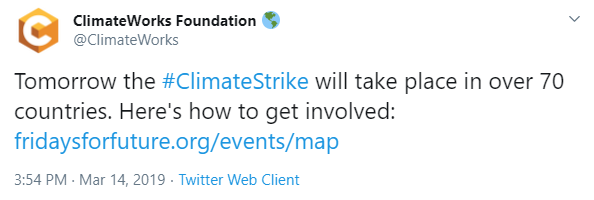
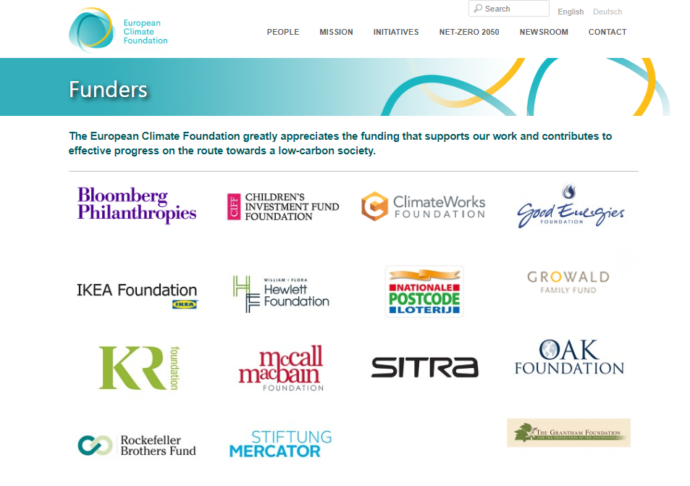
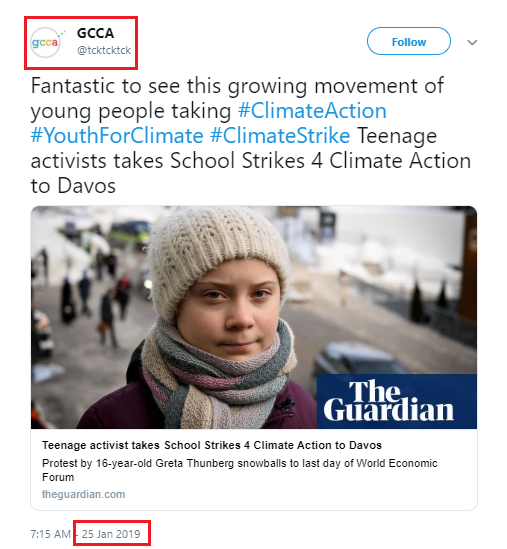
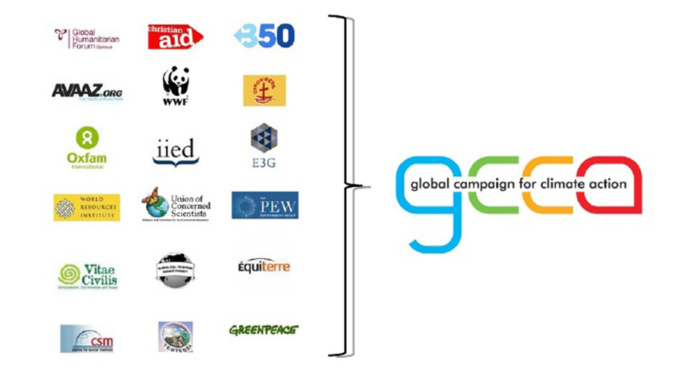
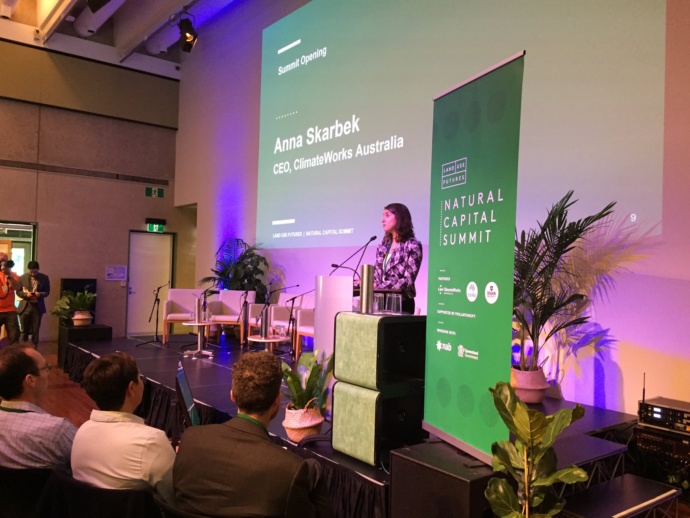
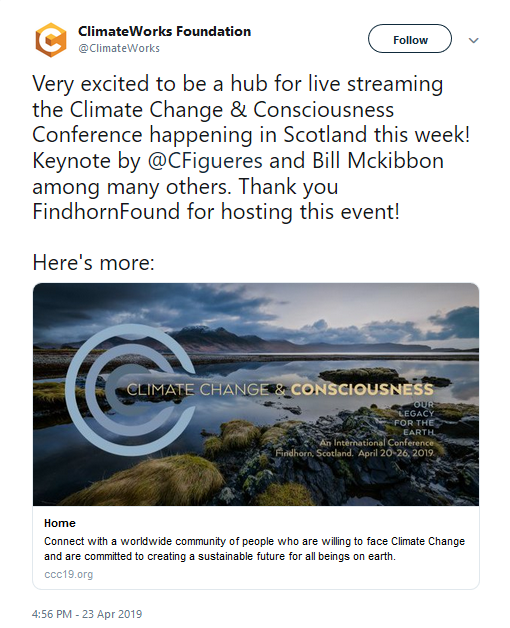
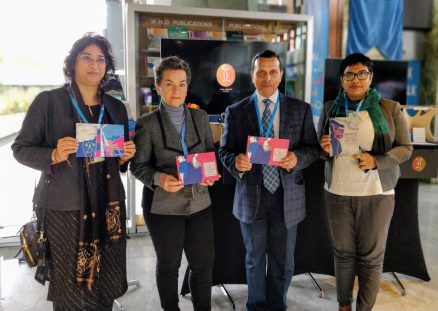
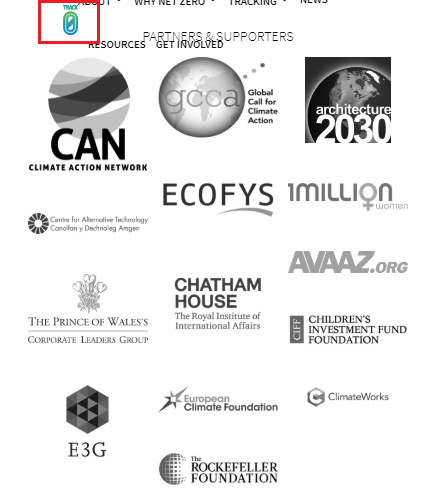
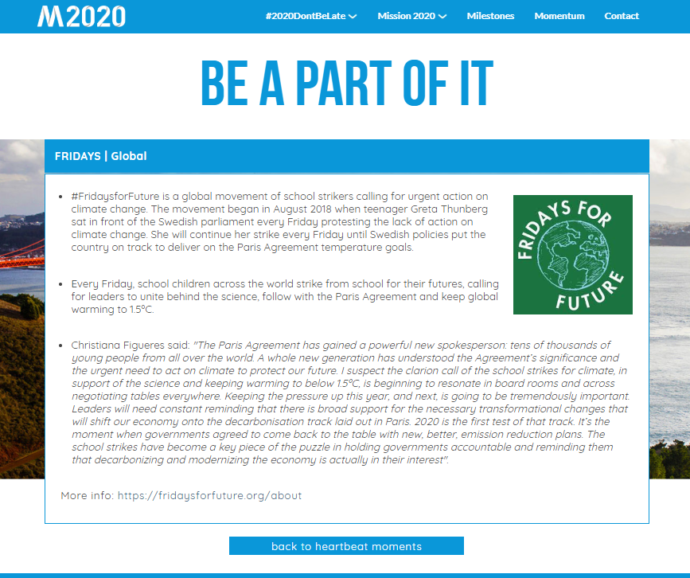
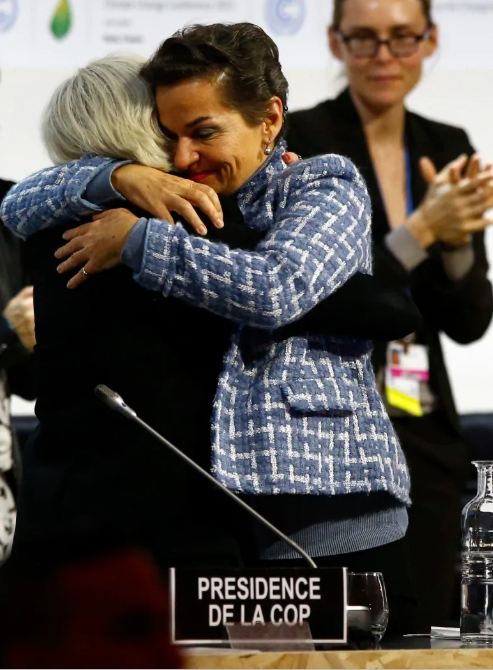
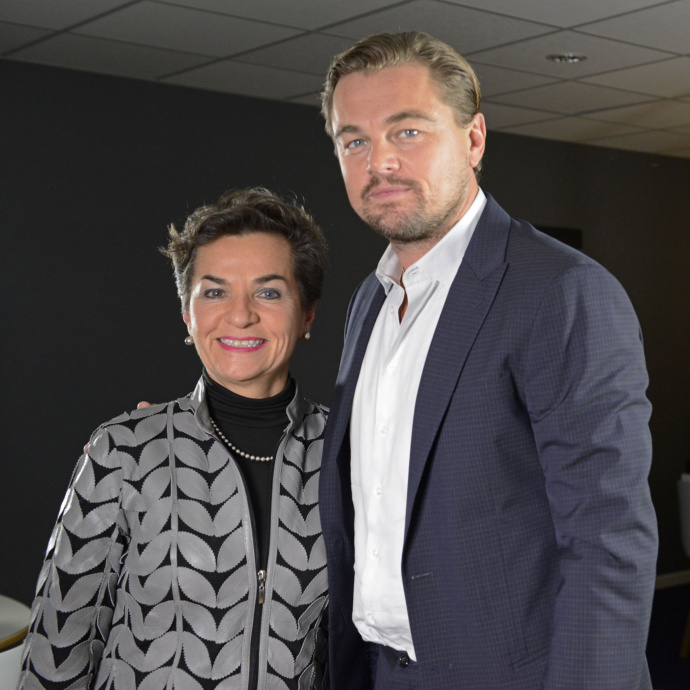
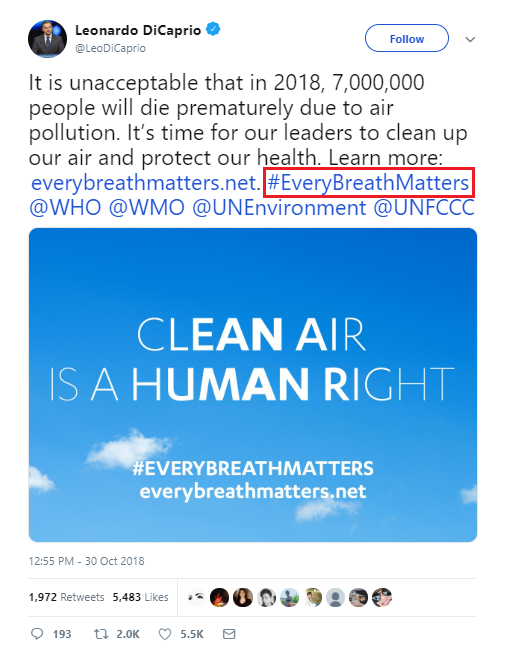

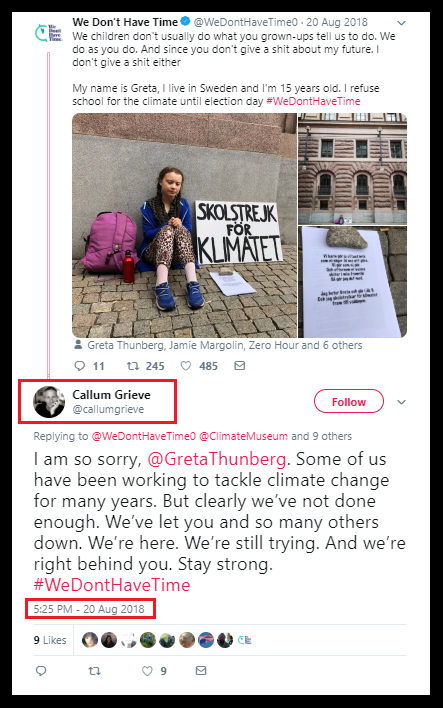


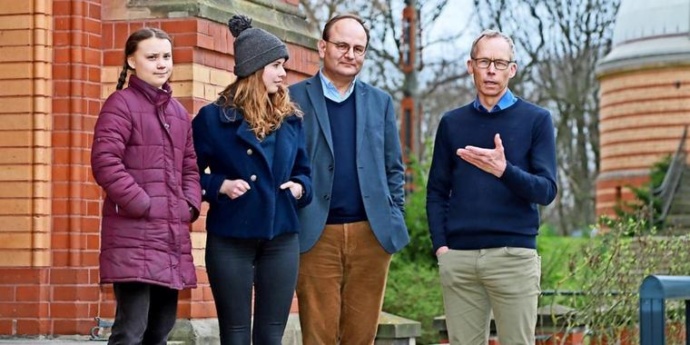
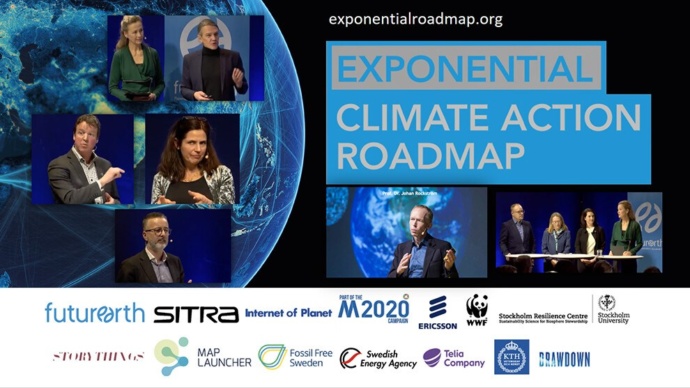
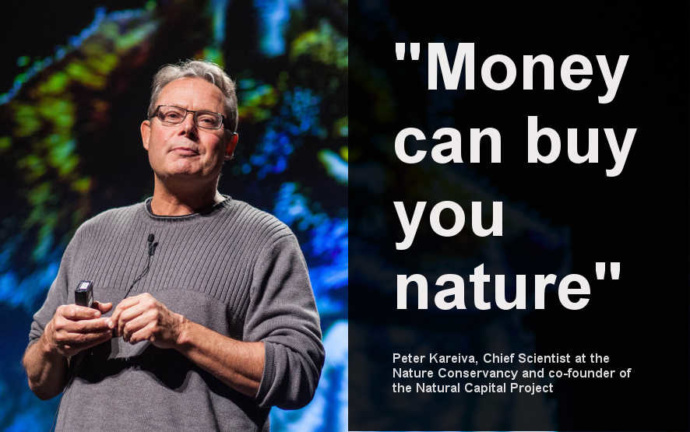


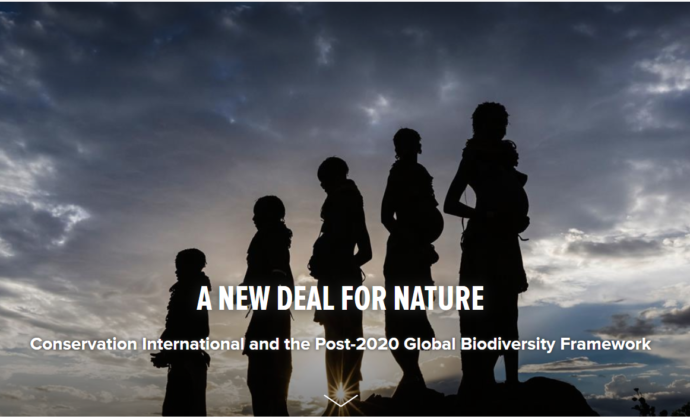
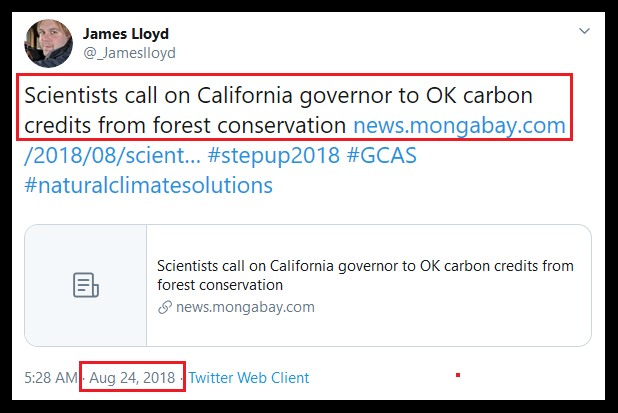
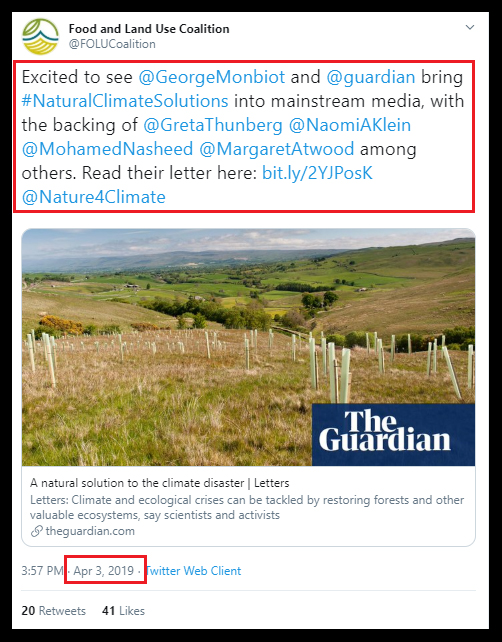
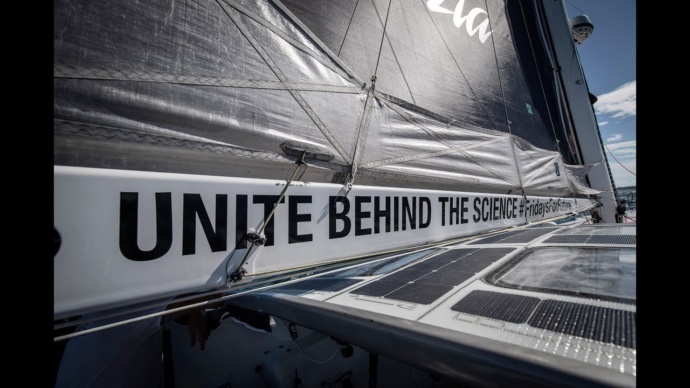
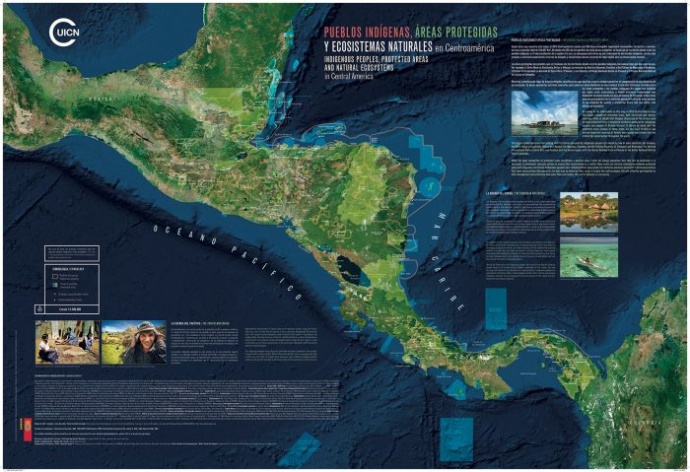
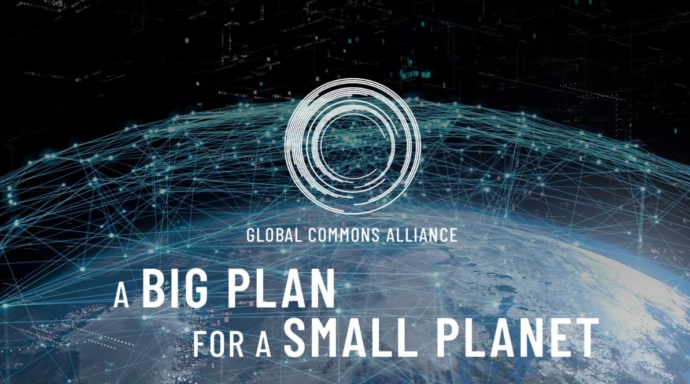

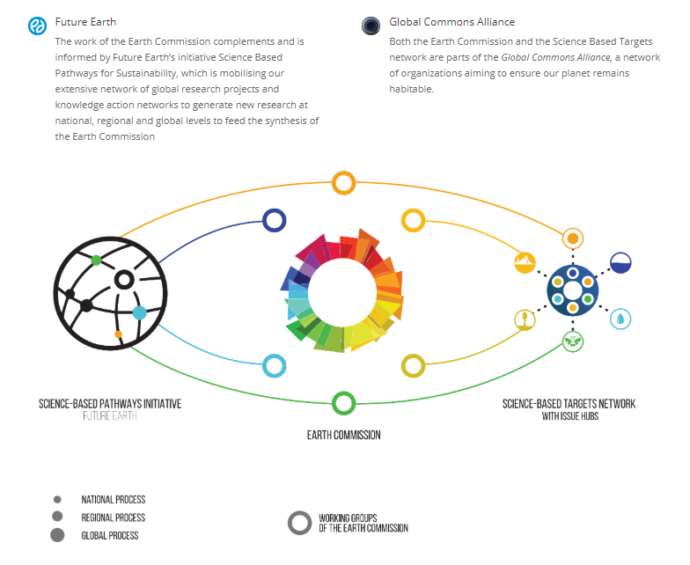
 Become a Patron!
Become a Patron!